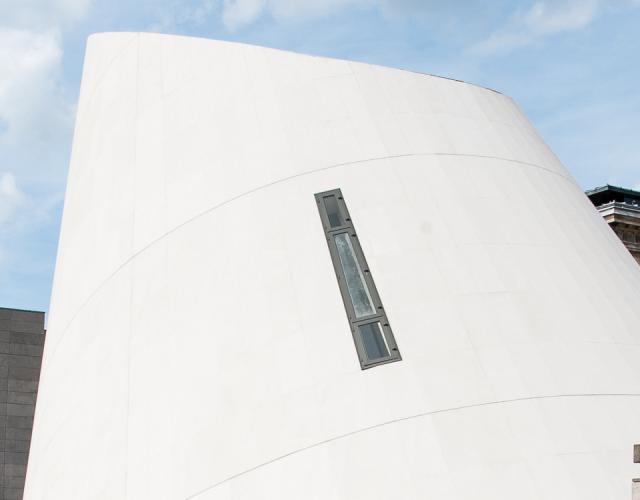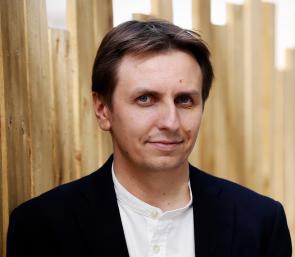
Theoretical and applied analysis
INFORMATIONS
-
Objectives and content
The Theoretical and Applied Analysis class proposes models of analysis (through the personal analyses of the teachers, those of musicologists or guest composers, or those of already published analytical texts) and aims to encourage students to take autonomous and inventive approaches. The analyses cover the major works of the great musical repertoire, without neglecting certain less-studied or even unpublished works, right up to the most recent premieres in all their diversity. In particular, they shed light on compositional, stylistic and poetic issues. The course covers the musical repertoire from the seventeenth century to the present day and the main analytical publications (in print or online) relating to it.
-
Entrance terms and conditions
Entrance examination 2025-2026 in THEORETICAL AND APPLIED ANALYSIS
Age limit: must be under 28 on1 October 2025.
Application dates: from 6 January to 10 February 2025 on the Internet: https: //ent.cnsmdp.fr/concours
1. Eliminatory tests
These tests are common to both the preparatory musicology cycle entrance examination and the advanced musicology cycle entrance examination.
Candidates who pass the eliminatory tests are eligible for all subsequent competitions.
1.1 Musical training
- Written tests (duration: 1h30)
- Dictation with missing parts from the recorded repertoire, which may contain rhythmic, melodic and harmonic statements.
- Monodic atonal statement and recognition of cadences and keys.
- Oral test
- Walk through an orchestral conductor including transposing instruments with rhythmic and sung reading on audio support (prior dressing room: 10 minutes).
These tests are common to the entrance examinations for the Advanced Musicology Cycle (Theoretical and Applied Analysis, Aesthetics, History of Music and Music Culture) and the Preparatory Cycle.
The following are exempt from this test
- students or former students in the advanced writing, composition, orchestration, conducting, accompaniment, keyboard improvisation, voice conducting, vocal accompaniment and choreographic accompaniment classes at the Paris Conservatoire;
- instrumentalist students who have passed the exemption exam or obtained the Music Training certificate from the Paris Conservatoire;
- holders of the Diplôme d'État de Formation musicale ;
- holders of the following Certificats d'Aptitude : Formation musicale, Culture musicale, Écriture, Accompagnement, Professeur animateur et Directeur.
- Candidates admitted to the agrégation in music;
- Holders of a DEM in music training or orchestral conducting;
1.2 Vocal or instrumental practice
Performance of a work or excerpt from a work of the candidate's choice lasting no more than 5 minutes.
This test is waived for
- students or former students in the instrumental classes of a CNSMD ;
- holders of a Diplôme d'Etat or Certificat d'Aptitude in instrumental or vocal performance;
- holders of a specialised cycle award (acquired) from a CRD or CRR, a Conservatoire Municipal d'Arrondissement de Paris, a brevet d'exécution from the Ecole Normale de Musique de Paris, or their equivalent from a school abroad, less than five years old.
Proof of these qualifications must be provided at the time of registration.
2. Eligibility tests
The entrance examinations consist of two modules:
- a module common to all disciplines ;
- a specific module.
Module 1: (Duration 4 h)
Test common to all four disciplines: three listening commentaries, one of which must include a score.
The commentaries may be accompanied by questions on specific points of analysis.
Each work or excerpt from a work will be played two or three times.Candidates who have already passed the entrance examination for the Musicology and Analysis department are exempt.
Module 2: (Duration: 5 hours)
Writing test for the Theoretical and Applied Analysis class: a given classical or romantic song.
Exemptions :
- candidates who have already passed the entrance examination for the Musicology and Analysis department.
- students or former students of the Conservatoire in the higher classes of Writing, Orchestration and Composition, or candidates newly admitted to these disciplines, as well as holders of the Certificate in Initiation to Writing B.
Candidates who pass these eligibility tests will be eligible for all subsequent competitions.
3. Admission tests
Written tests (duration: 4 hours) :
- an analysis on score of a work or fragment of a work in tonal idiom, including a brief formal analysis which may include a diagram and questions of harmonic, melodic or rhythmic analysis ;
- a score-based analysis of an excerpt from an orchestral work including, for example, questions about the orchestral instruments and a written reduction on two or three staves of a short excerpt from an orchestral score.
Oral test (duration: 10 min):
- A short interview with the jury focusing in particular on the content of the written tests.
N.B. : Candidates admitted to the competitive entrance examination for the 2nd cycle who are not nationals of French-speaking countries must present, before 30 June preceding their first enrolment at the Conservatoire, a certificate issued by a body approved by the French government attesting to a level of French at least equal to B1 on the Council of Europe's scale of common reference levels, before 10 December following their first enrolment at the Conservatoire, a certificate issued by a body recognised by the French government attesting to a level of French at least equal to B2 on the Council of Europe's scale of common reference levels. In all cases, students who have not fulfilled the aforementioned obligations by the end of their studies will not receive the diploma for the course they have taken.
Internal transfer to the Theoretical and Applied Analysis class
Conservatoire students who have obtained the Analysis B certificate with distinction may enter the Theoretical and Applied Analysis class without taking the competitive examination, subject to availability.
- Written tests (duration: 1h30)
-
Assessment terms and conditions
Continuous assessment
This accounts for 30% of the final exam mark.
1- Listening commentaries, oral presentations and other table-top or home exercises in Year1 (mark out of 10).
2- Two examinations in the2nd year (mark out of 10).
Students in the third year are not required to take part in the tests in point 2, but may take them again in order to improve their grade.
In this case, they will retain the benefit of the best mark received over the two years (2nd or3rd).
3- Assessment of the progress of the research dissertation submitted with a view to obtaining the Prize (see final examination) (mark out of 10)
FINAL EXAMINATION
The final exam only concerns students in their2nd or3rd year; there is no exam at the end of the1st year. The results of the tests account for 70% of the final exam mark.
Written test
Research dissertation (see continuous assessment): mark out of 25
The dissertation may focus on a specific work or body of works (particularly in relation to recent musical creation), on the historiography of analysis, or on the writings of composers.
It may include an interdisciplinary approach (composition, ethnomusicology, instrumental disciplines, writing, new technologies, etc.).
An electronic version of the dissertation must be submitted two weeks before the jury's meeting.
Oral tests
- Oral examination of the dissertation (mark out of 20):
Length of presentation: 30 min (20 min presentation + 10 min questions)
The oral presentation is not an oral reformulation of the written work but a new performance that may take several forms: clarification with examples of the analyses proposed, broadening of the subject, broader study of the sources or corpus, shedding new light on the problematic with a complementary piece, etc.
- Deciphering" oral (mark out of 25):
A brief oral analysis of a work studied after practice (1 hour) with score and recording available to the student; two subjects will be offered to each candidate at the start of practice, one of tonal music, the other from the 20th century to the present day.
Time allowed for the test: 20 min (15 min presentation + 5 min questions from the jury on this test).
Total duration of the oral examinations: 50 minutes per candidate.
-
Duration of studies
2 or 3 years
-
Reward
Reward
-
Erasmus
Yes


